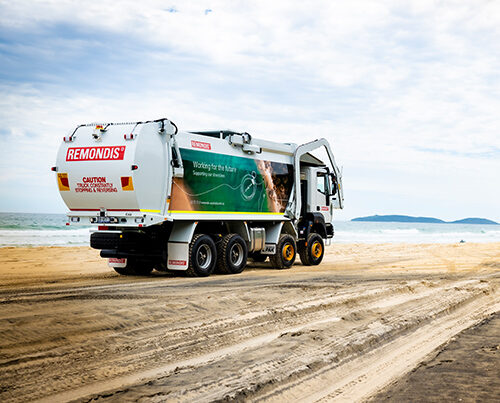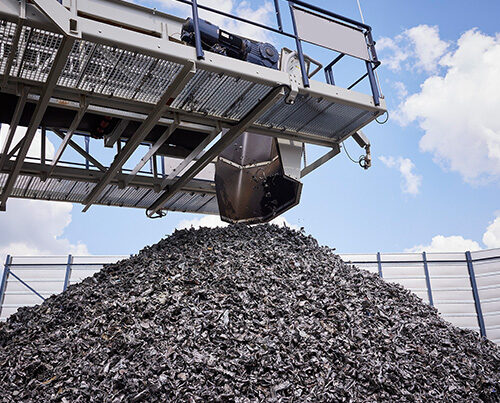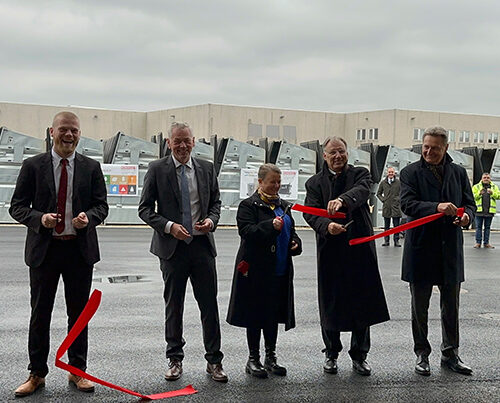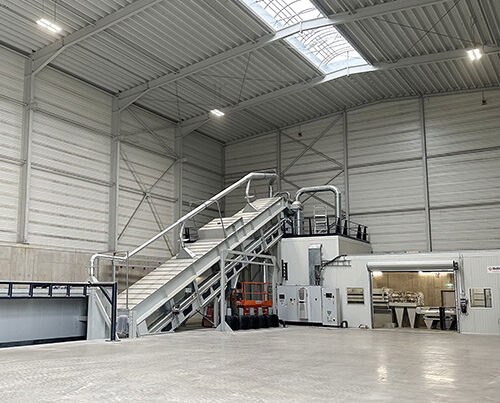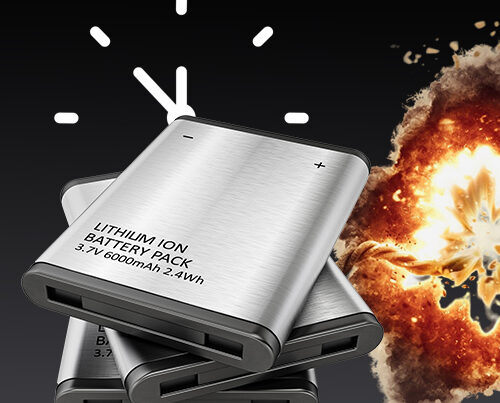Cruise ship run on natural gas
Environmentalists have gradually been increasing their criticism of the cruise industry over the last few years. For the most part, their focus is on the exhaust emissions from the ships’ diesel engines and the resulting air pollution in the ports. Meyer Werft unveiled a pioneering solution to this problem in Papenburg this November when it presented its very first gas-fuelled cruise ship. This is not, however, the only step that the shipyard has taken to grow sustainability and environmental protection at its business. If you take a look behind the scenes at Germany’s biggest shipbuilders, you will find a comprehensive code of conduct that sets clear sustainability rules that apply to everyone – from its management team all the way through to its suppliers, including REMONDIS Industrie Service GmbH.
The world’s largest shipbuilding hall is in Papenburg
Meyer Werft is well known all around the world for its shipbuilding skills and its ability to build highly complex boats, in particular cruise ships. The world’s largest shipbuilding hall is in Papenburg – 504 metres long and 125 metres wide. Every ship that leaves this hall has been put together using the so-called “block-building system”. Up to 90 individual blocks are pre-fabricated and gradually assembled, creating a complicated chain of separate processes that need to be perfectly coordinated both in-house and with external partners. 3,450 employees and numerous suppliers and service providers work together hand in hand. This not only gives the company a competitive edge, it also reduces carbon emissions and the consumption of resources.

employees and numerous suppliers and service providers work together hand in hand on every ship. This not only gives the company a competitive edge, it also reduces carbon emissions and the consumption of resources.
REMONDIS offers solutions for hazardous waste
Despite all the company’s efforts, however, it is simply not possible to build ships without having to handle environmentally hazardous substances. Paints, solvents and fats are all needed to protect the ships. Which means, of course, that hazardous waste is produced such as paint sludge, used solvents and fatty or oily liquids. While they may only make up eight percent of all the waste produced by the shipyard, they are high on the list of priorities of this environmentally conscious firm because of the harm they could potentially cause. And this is the reason why Meyer Werft has been working together with REMONDIS Industrie Service since last year, choosing to collaborate with a reliable partner who is able to safely manage and recycle or dispose of hazardous substances.
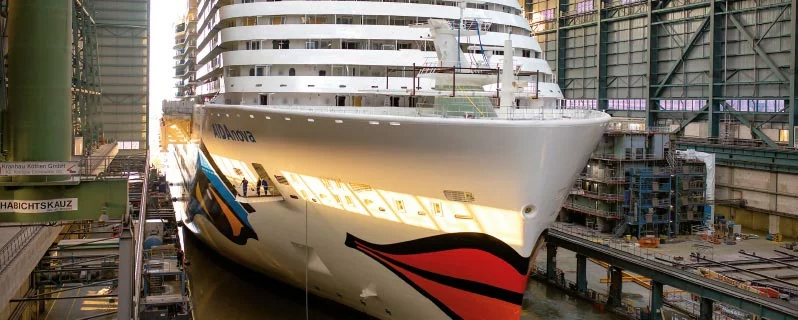
It is simply not possible to build ships without handling environmentally hazardous substances. They are essential for protecting the boats
A logistical challenge
The majority of the residual material that REMONDIS Industrie Service GmbH picks up from Meyer Werft is oily wastewater from the docks or the ships’ hulls. This collaboration work with Meyer Werft is also a completely new experience for REMONDIS’ branch in Melle, as timing is everything. The biggest challenge here is to ensure that the delivery of these “floating cities” is not delayed. The schedule for sending a ship down the Ems river to the North Sea is planned to the minute. The date the ship is launched depends on a number of factors – in particular on the weather and the water level of the Ems. The company has to stick to a narrow time frame. Work is carried out on the ship right up to the very last moment, which means that a range of different waste materials is also generated. A logistical feat for REMONDIS’ employees as both the staff and vehicles have to be available whenever they are needed, also at the weekend. The work at Meyer Werft has to be carried out ad hoc. Failure to provide the services needed would have disastrous consequences.

The biggest challenge: the launching of a ship is planned to the minute – everything has to go exactly as scheduled
Six tankers in action
In September, just a few hours before the gas-fuelled AIDA Nova was due to be launched, REMONDIS’ team drove six tankers to the quay to remove the remaining wastewater from the ship – hard work but a great experience at the same time. “Thanks to our company’s infrastructure, we’re able to provide such specialist services. We’re really pleased as it means we are able to serve the shipbuilding industry in the south of Lower Saxony as well,” commented Günter Pieperjohanns, REMONDIS Industrie Service Bramsche.
Two of RIS’ subsidiaries have also been commissioned by Meyer Werft to carry out work at the shipyard: REMONDIS AS-CONTROL to service its fat and oil separators and REMONDIS Medison to handle any healthcare waste produced by the company’s doctor.
It is not without reason that Meyer Werft is considered to be one of the cleanest and most environmentally friendly shipyards in Europe. By processing the company’s wastewater and transforming its paint and coating waste into RDF and recycled metal, REMONDIS is helping the shipyard to maintain its exemplary recycling rate of 95%.
Image credits: image 1, 3: © REMONDIS







